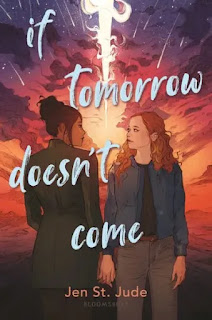But as she is in the process of drowning herself in the river, her plans are interrupted by the shocking news that the world itself is ending. An asteroid is hurtling towards Earth and will collide in nine days -- ending all human life for certain. The result is global panic as people scramble to reunite with their loved ones and struggle to find meaning in their final days. For Avery, it means abandoning her plans and reflecting through flashbacks upon how she got to this point. In the process she discovers that people do love her and there is value to life.
Certainly an unusual story with its original combination of plotlines. While it sounded intriguing, I didn't find it worked all that well. Neither the end of the world nor clinical depression can really be addressed in a meaningful way in such a limited window and that sets the novel up to fail. The pacing of the two stories is necessarily different. The end-of-the-world story is very immediate and very intense, while the flashbacks showing Avery's descent into despair are moody and languid. Compounding the impossible stories is the fact that the book consists of almost entirely false starts. It's hard to say what one could do in only nine days that would have meaning, but it really isn't clear why what these characters actually do during it amounts to a compelling read.
Well-written but the concepts of the two stories never really pans out.


No comments:
Post a Comment